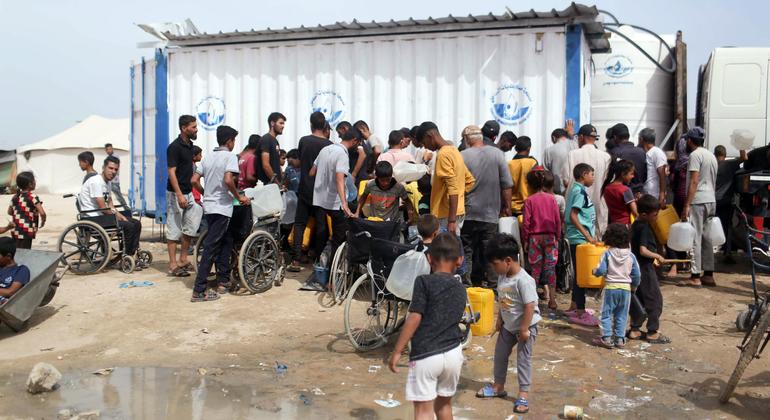The situation in Gaza has reached an unprecedented emergency level, with tens of thousands of people forced to flee due to recent evacuation orders by Israel. The World Health Organization (WHO) and its partners have been working to establish field hospitals and support the restoration of the Nasser Medical Complex in Khan Younis to ensure access to basic health services. Hospitals in the region are already overloaded with patients, with the recent evacuation orders affecting access to critical services such as dialysis at Al-Najjar Hospital.
WHO has been advocating for hospitals to be protected and has set up mechanisms for a referral pathway between hospitals in case access is restricted. The Emirati Maternity Hospital in Gaza is a key facility that delivers over 100 babies each month, and efforts are being made to ensure that it remains fully operational. In the event that access to the hospital is lost, pregnant women could be referred to field hospitals in the Al Mawasi area or to the Nasser Medical Complex.
Fuel shortages in Gaza are reaching critical levels, with the possibility that fuel for humanitarian operations could run out as soon as tomorrow. The closure of the Rafah crossing with Egypt has severed access to fuel, impacting the entry of critical relief items and the movement of aid workers. Humanitarians have just 30,000 liters of diesel available, far below the 200,000 liters normally used daily. Priority is being given to health, water, and communication services, with some fuel set aside for these critical needs.
Efforts are underway to ensure rapid access and movement of supplies to areas in need, such as Khan Younis, the Middle Area, and north Gaza. WHO is working to support hospitals in Rafah, including the Emirati Maternity Hospital, to ensure they are fully prepared and supplied with necessary medical equipment. However, recent developments have affected access to these hospitals, with patients afraid to seek services due to evacuation orders. The situation is particularly concerning for patients at Al-Najjar Hospital who rely on dialysis services.
The humanitarian crisis in Gaza is escalating, with shortages of fuel and food threatening the ability of aid organizations to provide necessary assistance. The closure of the Rafah crossing has further complicated relief efforts, limiting access to critical supplies and impeding the movement of aid workers. WHO and its partners are working to address these challenges by establishing field hospitals and supporting existing medical facilities to ensure access to essential health services for those in need. The protection of hospitals and the establishment of referral pathways are key priorities in the response to the escalating crisis in Gaza.









